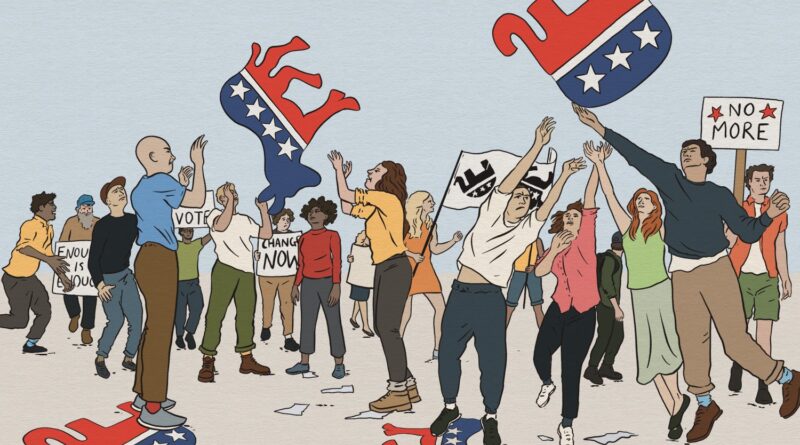Kamala Harris: From Potential Nominee to Trivial Figurehead
William Henry Harrison, who served as the ninth president of the United States, has the unique distinction of being the last holder of this prestigious role to be birthed as a British subject. He is also renowned as the inaugural member of the Whig Party to set foot in the White House. In a remarkable paradox, his inaugural address stands as the lengthiest in history, spanning close to two hours, while his tenure as president is recorded as the shortest. His time in office was abruptly ended by his death after a mere 31 days.
Harrison has also gone down in the annals of history as the last political figure to experience defeat in his first presidential run, only to come back and win the election the next time around. This feat was only achieved prior to him by Thomas Jefferson and Andrew Jackson. Meanwhile, the only two other individuals to have tasted victory followed by defeat, and then triumph again were Grover Cleveland and Donald Trump. Richard Nixon also faced defeat but won his place in the White House much later.
Save for these exceptions, a recurring pattern presents itself throughout history – those who suffer a defeat in a presidential election and then dare to attempt once more are most likely to lose again. Adlai Stevenson from the Democratic side and Thomas Dewey of the Republican Party provide evidence of this trend, each having fought and lost two presidential campaigns.
Similarly, history was not kind to Henry Clay and William Jennings Bryan, both of whom lost the presidency three consecutive times. The clear message from the electorate is that second chances in politics are not readily given, let alone third. This paints a gloomy picture for Kamala Harris, whose recent decision to not campaign for the governorship of California has led to theories that another White House bid may be on her mind.
The Democratic Party is currently making no friends among voters. The net favorability rating for the party is at a distressing negative 30 points, nearly triple that of the GOP which stands at negative 11 points. Now, the Democrats find themselves in a predicament they haven’t grappled with in the previous three and a half decades – becoming more disliked than ever.
To make matters worse, the very ones who are supposed to politically represent – the Democrats – are the ones expressing disappointment. The reasons are not one but two-fold – their inability to bring down Trump and failing to present a real challenge to his administration. While Kamala Harris cannot shoulder all the blame, her position within the party is indicative of the widespread dissatisfaction.
Party members are divided into different strands of dissatisfaction. The progressive wing remains frustrated at what they view as a lack of sufficient resistance, while the more moderate section laments over misplaced battles, with an overemphasis on cultural and identity debates. What binds these factions together is their universal longing to secure victories.
Kamala Harris was teed up to be the Democratic nominee in 2024 for one primary reason – she ticked the boxes of diversity. Joe Biden’s clear intentions to select a running mate who was both a woman and an African American benefitted her. Despite this, her primary issue is not related to her gender or race, it boils down to her inadequacy in expanding the Democratic coalition.
If the Democrats seek to regain power, a candidate who can sway Trump supporters is not a preference but a necessity. Harris’ shortcomings weren’t a result of insufficient support from Democratic voters. Instead, she fell short due to her inability to enthrall a shifting electorate. Her speeches often resembled those typically heard in a liberal arts orbit.
Furthermore, on numerous instances, her convictions seemed contrived, carefully curated by focus groups in a time when voters sought authenticity. Adding salt to the wound, Harris willingly conformed to Joe Biden’s request to not put any distance between them. This was a strategic mistake that made her seem like a puppet rather than an independent thinker.
The decision to choose ‘The Late Show’ with Stephen Colbert for her first interview post-resignation spoke volumes. The liberal audience of Colbert’s show found it appealing, but unfortunately, this is not the audience that holds the key to a Democratic victory.
These reasons suggest that if the Democrats proceed to nominate her again for presidency, she is highly likely to be remembered as an interesting piece of trivia rather than as a significant figurehead. There is a high probability that she won’t be remembered as the 48th president of the United States.

